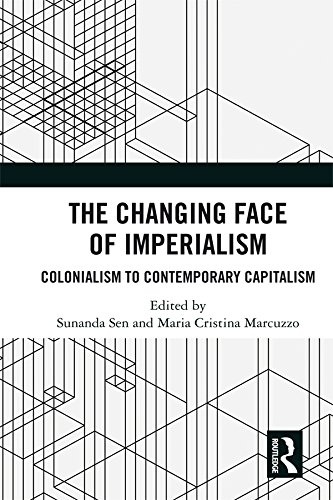The evolution of capital, the corresponding spread of western imperialism, the exploitation of the colonies, fuelled by the industrial needs of the West, anti-colonial struggles against the abject exploitation of the colonies and the subsequent formation of the sovereign independent government in the new nation states is all but one seamless trajectory, wherein also lie the voices of resistance as well. Such resistance or for our purpose, the alternative economic model—of socialism or welfarism—continued to be an aberration in the world where economics as a discipline has been tailored to be studied and understood in isolation from politics. It is in this milieu of the dominant model of neoliberal economy being pushed world over that the book under review becomes central to enhance our understanding on the changing nature of imperialism. The editors, Sunanda Sen and Maria Cristina Maracuzzo, provide the readers a wide range of essays from an equally impressive set of varied scholars on the subject covered. Through its condensed scholarly papers, arranged thematically, the book traces the growth of imperialism and the ever widening economic rift between the global North and the South.
The book is arranged in four parts. The first, comprising five essays, addresses the theoretical work on imperialism and its present evolution and the location. In the very first essay, Satyaki Roy underlines the near total eclipse of the world through capitalist relations—what Slovenian philosopher Zizek call as the ‘worldwide triumph of capitalism’. This overarching presence of capital, for Satyaki, increasingly blurs the lines between the ‘core and periphery or North-South or First, Second and Third Worlds’, leaving the structure of the nation state irrelevant if not completely redundant. The essay succinctly underlines that with the advent of neoliberalism the ever present class conflicts have become sharper and the new imperialism consistently paddles the discourse of development that seemingly obfuscates the boundaries of the nation and the global, while the unambiguous reality is the emergence of a global bourgeoisie serving the interests of the global capital.

